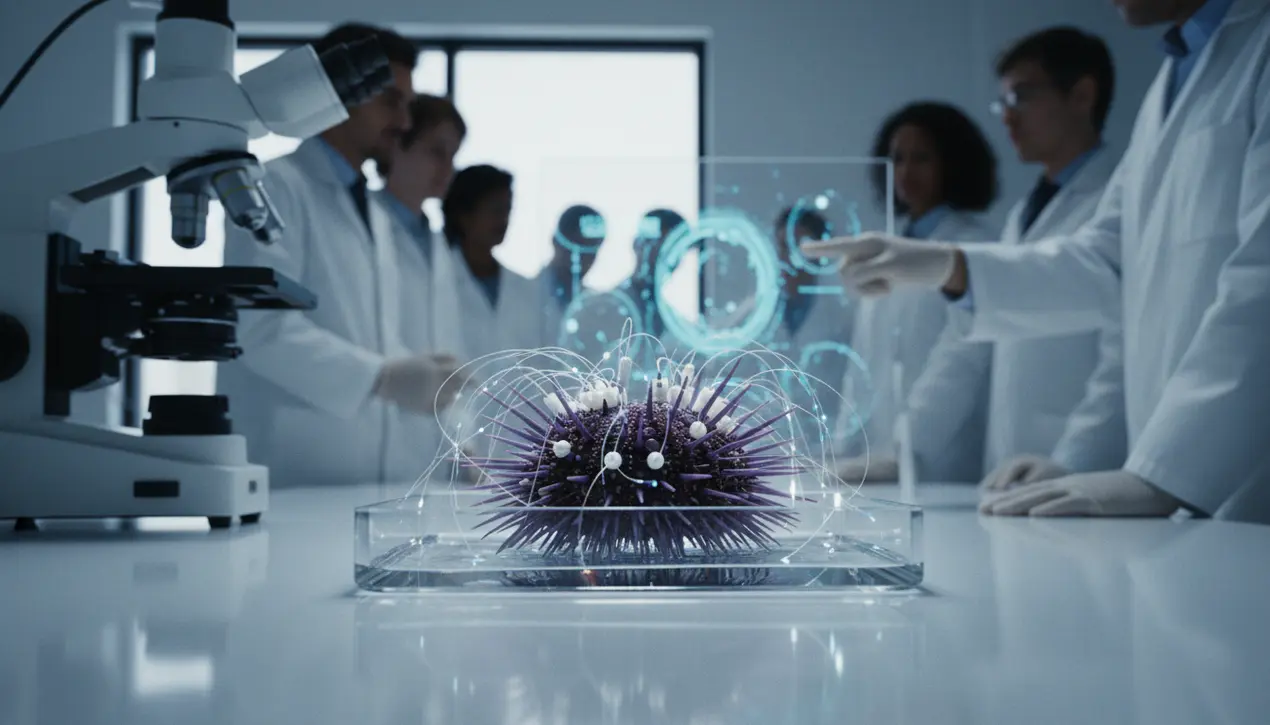
Scienceneuroscience
Sea Urchins Described as Walking Brains by Scientists.
TH
Thomas Green
2 hours ago7 min read
In a revelation that redefines our understanding of neural organization in the animal kingdom, scientists have posited that the humble sea urchin is, for all intents and purposes, a walking, pricking brain. If you've ever marvelled at this enigmatic echinoderm and wondered about the locus of its cognition, the answer is now startlingly simple: the entire organism serves this function.From its formidable, spike-laden exterior down to its soft, gelatinous core, the sea urchin's body is a distributed neural network, a biological marvel that challenges the very cornerstone of neurobiology—that intelligence must be centralized. This discovery, emerging from detailed genomic and physiological studies, indicates that the sea urchin possesses an intricate nervous system that is not confined to a clump of grey matter but is instead woven throughout its physical structure, allowing its spines and tube feet to act not merely as tools for locomotion and defense but as sensory and processing units in a vast, embodied mind.This decentralized model of intelligence offers a radical counterpoint to the human experience of consciousness and prompts a profound re-evaluation of what it means to 'think. ' Researchers, drawing parallels to other distributed systems in nature such as fungal mycelial networks or even the collaborative intelligence of insect colonies, suggest that the sea urchin's design represents an evolutionary pathway where the body itself becomes the brain, enabling a form of environmental awareness and reactive capability that is both holistic and incredibly efficient.The implications ripple far beyond marine biology, potentially influencing the fields of robotics and artificial intelligence, where engineers have long struggled to create machines capable of robust, adaptive behaviour in unstructured environments. By studying how a sea urchin navigates the complex topography of a coral reef or evades predators without a central command centre, we may unlock new paradigms for decentralized AI and resilient robotic systems that can function even when parts are damaged.Furthermore, this finding forces a philosophical reckoning with our anthropocentric view of cognition, suggesting that sophisticated problem-solving and sensory integration can exist in forms utterly alien to our own. As we peer into the mysteries of the deep, the sea urchin stands as a testament to life's boundless ingenuity, a spiky, ambulatory reminder that the universe of mind is far vaster and more wonderfully strange than we had ever imagined.
#featured
#sea urchins
#neuroscience
#animal biology
#research
#marine life
#brain evolution
Stay Informed. Act Smarter.
Get weekly highlights, major headlines, and expert insights — then put your knowledge to work in our live prediction markets.
Related News
Comments
Loading comments...
© 2025 Outpoll Service LTD. All rights reserved.